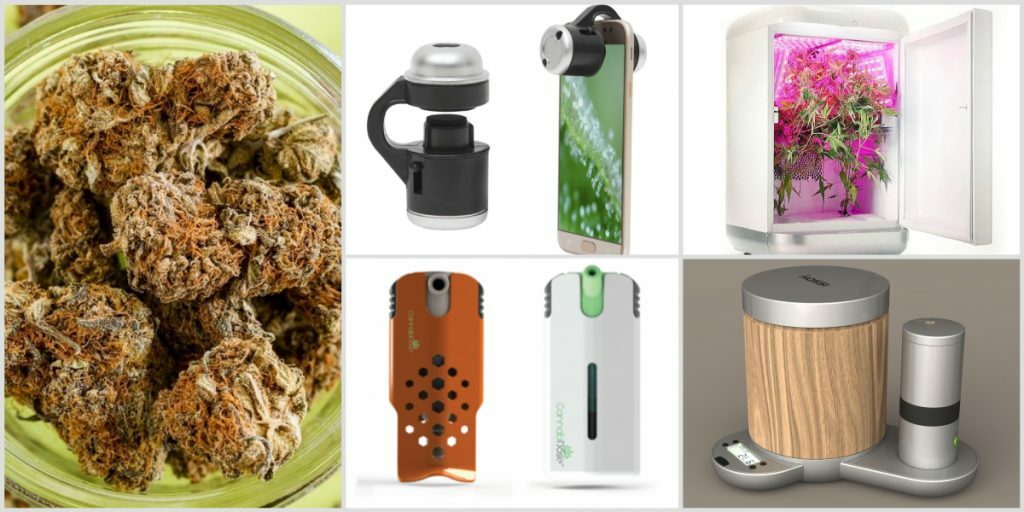
By Diana Rabba and Ricky Ben-David
For decades, Israel has been an established world leader in medical cannabis R&D, due to the pioneering work of Hebrew University of Jerusalem Professor Raphael Mechoulam. In 1964, the renown organic chemist was the first researcher to identify cannabis’ THC compound, the chemical known for causing a “high,” laying the foundation for scientific research on cannabis and its use in modern medicine.
In the years since, Israel became among the few countries with a government-sponsored medical cannabis program, and was the first in the world earlier this year to approve a vaporizer as a medical device for the use of cannabis extracts and formulations.
Though the country’s efforts to lead in other areas – like its big plans to become a top medical cannabis exporter with an estimated $1 billion in revenue per year – have stalled due to political wrangling, Israeli cannabis startups have stepped ahead with cutting-edge, smart devices and products for cannabis cultivation, consumption, measurement, and storage.
And their sights are set on the global cannabis market, expected to be worth some $32 billion by 2022.
Oren Todoros, CEO of the branding firm CannaImpact, tells NoCamels that mixing cannabis culture with IoT (the internet of things) “has the potential to lift the industry to new heights.”
“Due to this rapid shift towards smart connected devices, growers and consumers are increasingly turning to IoT technologies, essentially comprising of sensor devices, artificial intelligence (AI) and data analytics, to bring new efficiencies to the way we grow and consume cannabis,” says Todoros, whose firm works with Israeli startup Kassi Labs, which developed a smart storage hub solution for marijuana.
Yona Cymerman, a co-founder of Can Innovation Finder (CIF), a new initiative that hopes to connect North American cannabis growers with blue-and-white tech solutions, says “the licensed producers we work with are always interested in hearing about innovative designs and technologies being developed to improve the consumer experience, and have expressed a lot of interest in devices and gadgets.”
“Israeli entrepreneurs have demonstrated great creativity in developing and designing their products, adopting concepts from other industries such as the sports market, and are aware of, and investing in the aesthetics of their products, which makes them all the more attractive for investment purposes,” she tells NoCamels.
From vaporizers and inhalers to growing environments and all-in-one storage solutions, we’re taking a closer look at seven companies that developed forward-looking “smart” gadgets for a next-generation cannabis experience and data analysis.
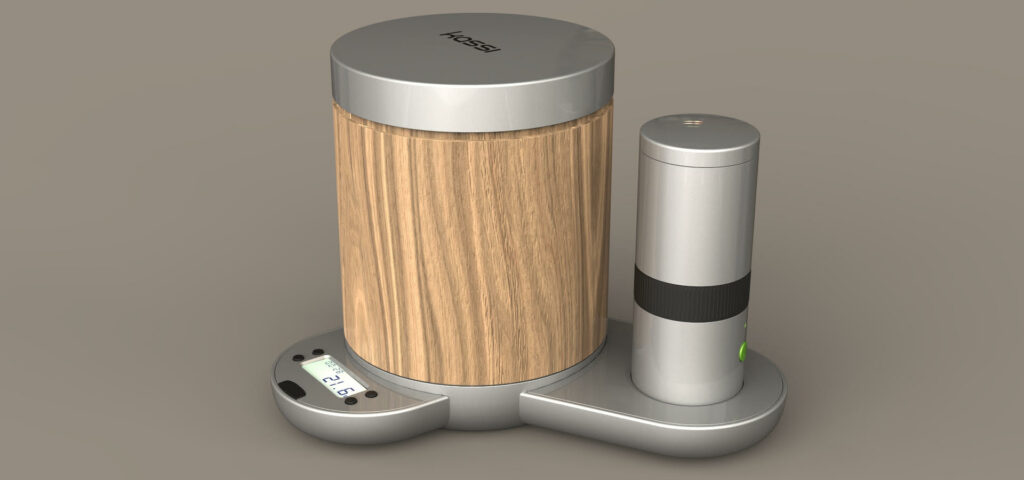
Kassi
Founded by Ido Havilio, cannabis startup Go On Green recently launched the Kassi, a medical short and long-term storage hub solution built with IoT connectivity for tracking consumption of medical cannabis and maintaining the plant’s freshness and potency, the company says. The holistic solution aims to take medical cannabis consumption, monitoring and storing into the 21st century, through the integration of multiple functionalities into one single device.
Kassi consists of a storage hub, a digital scale, a built-in grinder that can store up to four grams and a monitoring app.
The device’s sensor delivers real-time data on temperature and humidity levels directly to consumers’ mobile app. Integrated into the device is also a two-way humidity pack that adjusts and optimizes humidity levels when necessary, while the embedded smart scale notifies the user each time quantity within the Kassi changes.
Users can log specific strains, time of consumption, method, the effect of treatment, location and time of purchase, therefore keeping them up with the potential need to repurchase, and their overall daily dosage.
Havilio told NoCamels in a phone interview last month that the idea behind the Kassi was to introduce a “holistic solution to the market instead of users having to buy everything separately.”
Kassi “brings the cannabis experience into the 21st century,” he says.
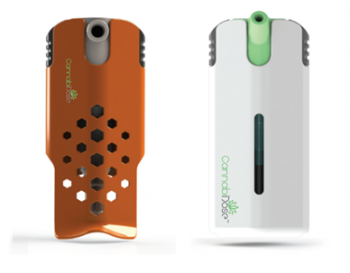
CannabiDose
CannabiDose, a Kfar Saba-based startup, develops oral delivery systems for medical cannabis-based products including oils, liquids, and ointments.
Its two systems are the CannaDose, a pocket-sized device that looks similar to an asthma inhaler and that delivers controlled, accurate doses, and the CannaMist Sport, which provides a controlled dose of cannabinoids in a fine, measured mist for sports enthusiasts and professional athletes.
CannabiDose’s products and solutions “support the usability, delivery, manufacturing, storage, and transportation of medical cannabis,” the company says.
While using the same outer shell design, customers can input varying pouches including “alternative cannabinoid profiles, strengths, and supplemental ingredients,” CannabiDose says.
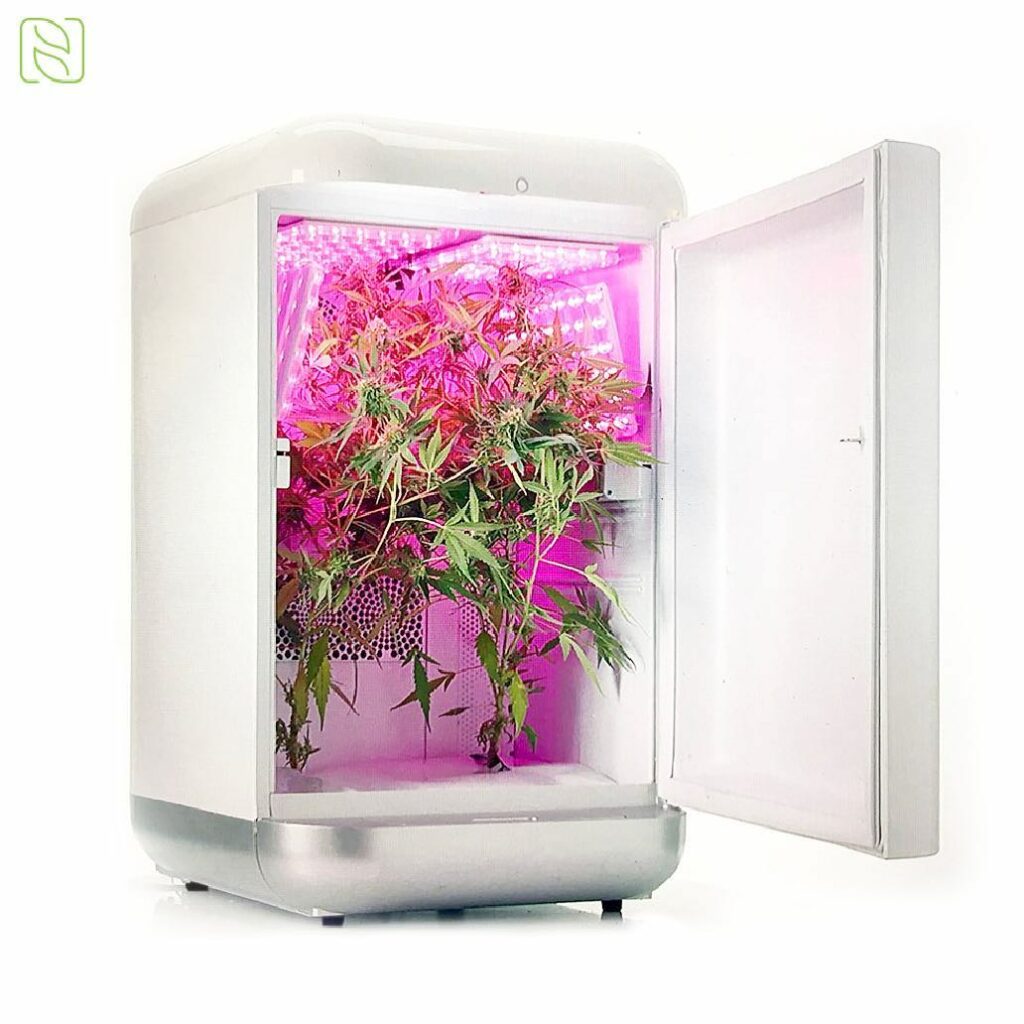
Seedo
Developed by Israeli company Eroll Grow Tech, Seedo is the first fully-automated grow device for medical cannabis. Remarkably resemblant of a mini-fridge, Seedo’s at-home growing device is powered by algorithms and monitored via a smartphone application, making for an independently run cannabis growing machine. Seedo holds a medical cannabis R&D license from the Israeli Health Ministry.
The device can grow the cannabis plant from seed stage without human intervention over the course of 90 days, according to the startup. It weighs 55 pounds (25kg) and measures 40 by 24.4 by 24.4 inches (101 x 62 x 62cm), with each unit listed at a price of $2,440. According to the company, over 3,500 orders have been placed so far during a presale stage.
Conceived at the outset as a device for recreational growth, the startup is now working on a prototype to grow plants for medicinal purposes according to physician instructions, which it expects to complete in the first quarter of 2019.
In September, the company raised $2 million from Cannabics Pharmaceuticals, a US-Israeli company that develops personalized cannabinoid medicine focused on cancer and its side effects. The two companies signed an agreement a month earlier to develop the first controlled device for growing medical cannabis at home, according to a previous statement.
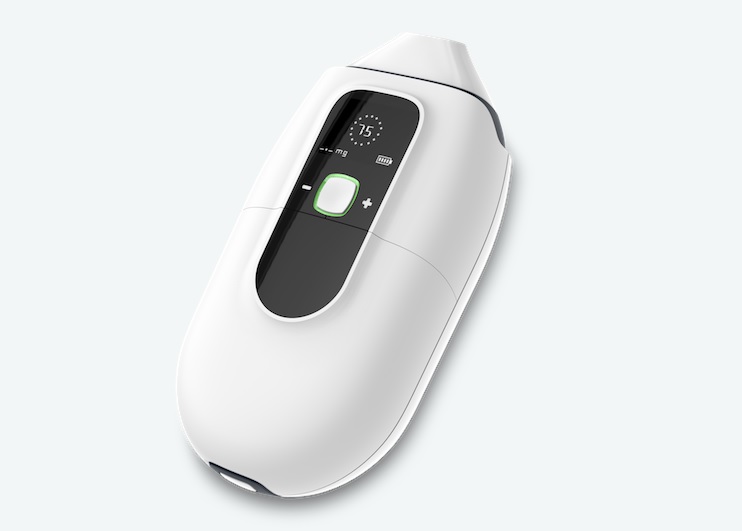
Syqe Medical
Founded in 2011 by Perry Davidson, Syqe Medical developed a pocket-sized inhaler of medical cannabis that provides precise dosage to patients, that can also be remotely administered from doctors. The inhaler utilizes selective 100 microgram dosing precision, real-time thermal and flow controllers, lung interfacing and wireless connectivity that serves physicians, researchers and health care entities. The company has raised $32 million to date.
The company’s inhaler comes in two variations – one for individuals and one for medical institutions. The hospital version, named Syqe Inhaler Exo, consists of selective-dose cannabis inhaler for professional healthcare use, featuring a caregiver interface. “For doctors, the inhaler solves the problem of prescribing plants for smoking, and offers a solution for patients in that, for the first time, they will be able to receive a precise dose of medical cannabis,” said Syqe Medical chairman Eytan Hyam in a statement.
Syqe Medical made headlines in 2016 after signing a cooperation agreement with Teva that ensured the exclusive marketization and distribution of the company’s inhaler in Israel.
In addition, the Syqe inhaler has been used for more than a year at Haifa’s Rambam Hospital with the approval of the Health Ministry, making it the first hospital in the world to prescribe cannabis as a standard medical treatment. Syqe Medical has also recently received Good Manufacturing process (GMP) approval from the health ministry. The company now hopes to begin marketing its product soon through pharmacies, according to a Globes report.
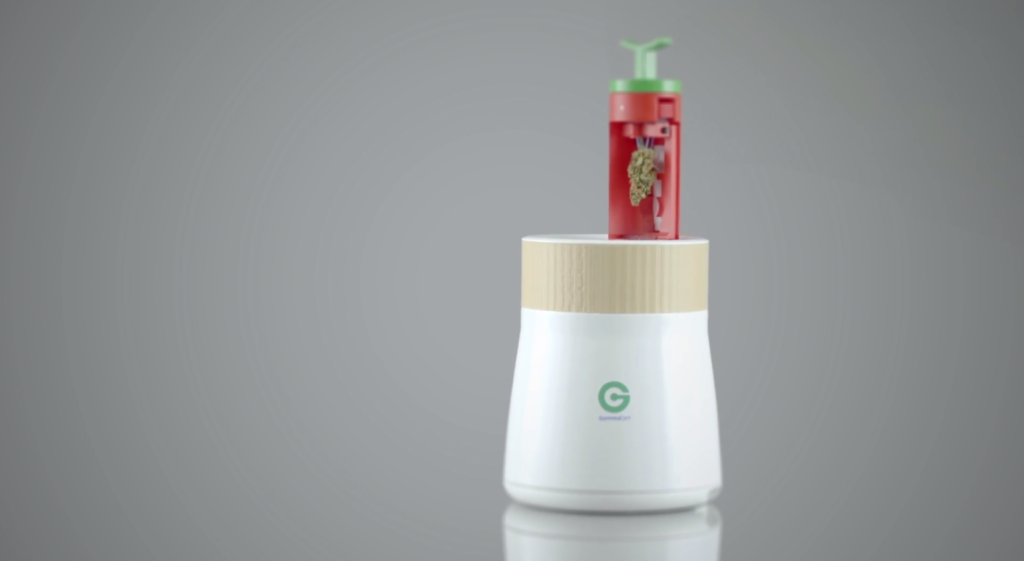
GemmaCert
Co-founded in 2015 by Dr. Guy Setton and Prof. Oded Shoseyov, biotechnology firm Gemmacert developed a home kit that is used to test the active ingredients content and cannabinoid levels of a flower bud. The device enables growers, dispensaries, labs, and home users to test and verify the composition and potency of an unlimited amount of flowers, without resorting to lab testing. Readings are then delivered to a proprietary smartphone application.
The GemmaCert patent-pending device collects spectral data from cannabis specimens which are inserted in the device. Optical sensors scan each specimen, which is then analyzed on the GemmaCert secure cloud server. Composition and potency readings are transmitted to the user’s smartphone in less than a minute, with the flower’s efficacy and commercial value remaining completely unaltered, the company says. The analysis is made possible through a combination of three technologies: image analysis, data analytics, and spectrometry− an FDA-endorsed technology.
The device was designed by Eran Lederman, a senior lecturer at Jerusalem’s Bezalel Academy of Design. “I settled on a design influenced by the Erlenmeyer flask. I was attracted to this because it is an archetypical, well-known image recognized as belonging in a laboratory,” he said in a statement.
To date, the company has raised a total of $5.3 million in funding over three rounds, according to Crunchbase. In June, the company announced the opening of a new round of funding, seeking nearly $6 million to push commercialization efforts for its cannabis composition and potency testing device, Potnetwork.
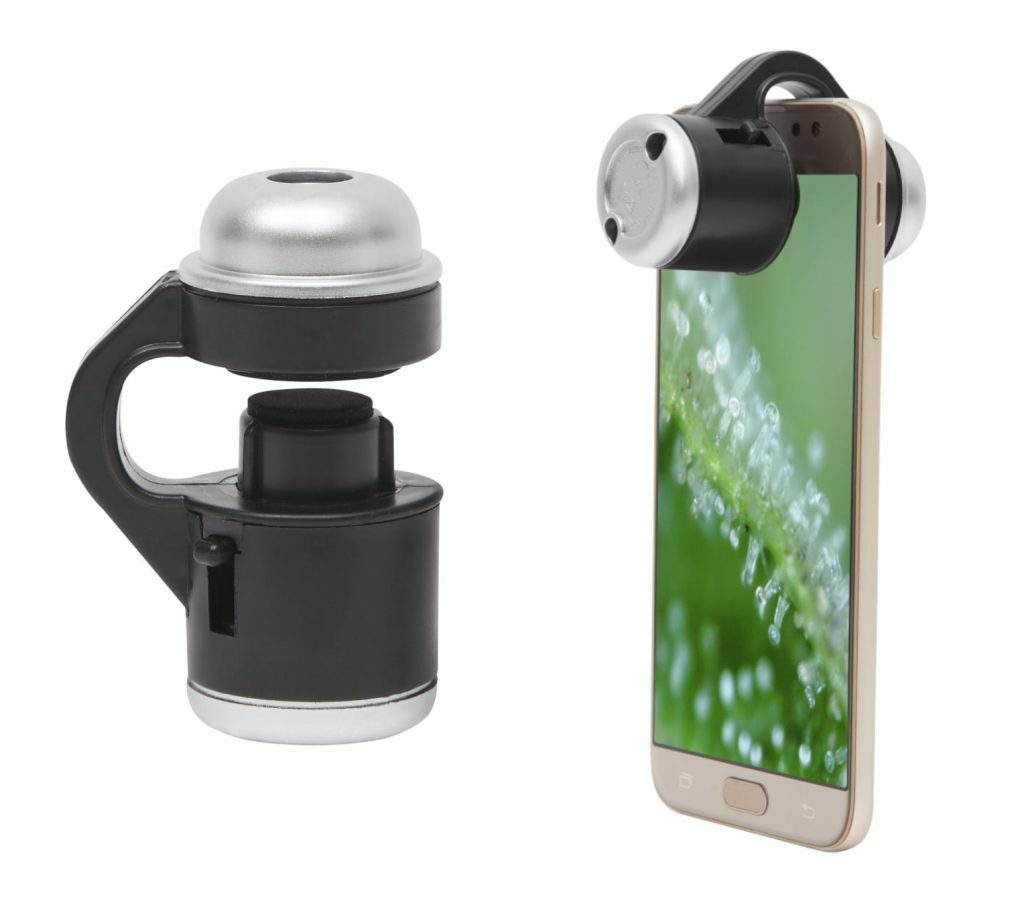
HiGrade
Founded in 2016 by Asaf Levy and Assaf Gavish, HiGrade developed a plant testing device and analytics application for the medical cannabis industry which it calls “the first artificially-intelligent cultivation expert.”
Through the use of machine learning technology, users can quickly identify the quality, strain, and other critical traits of their plants on their phone. Patients snap a photo of the plant, which is then analyzed by HiGrade’s patent-pending algorithms to detect the plant’s status – health, quality and potency – thus transforming the phone into “a powerful microscope.”
Levy, CEO of HiGrade, tells NoCamels that the company’s goal is “to provide users with deep insights about their medicine.”
“Although cannabis research and regulation are progressing rapidly, basic knowledge such as the potency of each bud is still not accessible to patients. With our innovative algorithms, we provide a first-of-its-kind potency testing tool which is fast, low-cost and non-destructive,” he explains.
The system is able to analyze plants across different strains, cultivation methods and capturing devices. Deep learning algorithms detect microscopic elements and specific patterns on the plant and assess the concentration of THC. “The democratization of knowledge through technology is key to the sustainable growth of this budding industry,” Levy says.
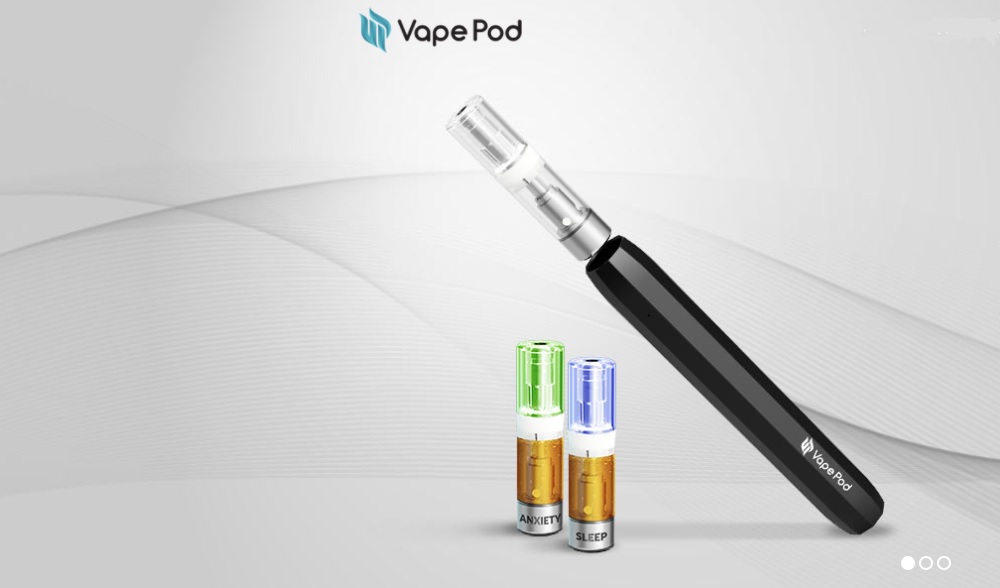
VapePod by Kanabo Research
Kanabo Research, an R&D company that provides clinical solutions for the extraction and vaporization of medical cannabis, developed the VapePod proprietary vaporizer, a medical inhaler of cannabis extracts and formulations.
VapePod’s CCELL technology embeds the heating coil 360 degrees within the ceramic core, to ensure uniform heating and consistent performance of extracts and formulations, the company says. The software works in synergy with Kanabo Research’s formulations of medical cannabis extracts.
In March, the product was approved as a medical device by the Israeli Ministry of Health in a move that made Israel the first country in the world to approve a vaporizer as a medical device for the use of cannabis. Kanabo said it has started pre-clinical trials of Kanabo’s proprietary formulations that focus on sleep disorders and in the future for patients suffering from post-traumatic stress disorder.
In April, the company announced that it was partnering with Constance Therapeutics, a US-based medical cannabis extraction company to establish a cannabis cultivation farm in Europe. According to the deal, Kanabo Research and Constance Therapeutics will operate the farm as well as manufacturing capabilities of cannabis active compounds – THC and CBD – to be used in an array of medical treatments and chronic ailments such as insomnia, PTSD and chronic pain. Constance Therapeutics is set to market Kanabo Research’s solutions in the US.

The Company is bringing on Tanya Gullick to lead a team that will pursue distribution and strategic
PLAYA VISTA, Calif., Feb. 12, 2019 (GLOBE NEWSWIRE) -- American Premium Water Corporation (OTC: HIPH) announces that it has established a business development team based in the UK and Spain to pursue distribution deals and strategic partnerships for the Company’s LALPINA brand across the Continent. The team will be led by Tanya Gullick, who will hold the title of Managing Director, Business Development, UK & Europe, with Paolo Toffolo as Director of Sales & Marketing for UK & Europe.
American Premium CEO Ryan Fishoff, commented, “I am thrilled to announce the Company’s entry into the European continent. This market has been largely ignored by a lot of our counterparts but collectively is as large as the US and Canadian hemp markets. I’m thrilled to bring Tanya and her team on board to expand our brand and sales efforts overseas. Their twenty five plus years of experience in the beverage industry and their expertise in the local markets will allow the Company and the brand to scale very quickly over there. In our strategic planning, they have outlined a marketing and sales strategy that is in-line with the Company’s overall strategy to promote LALPINA CBD; there will be a heavy emphasis on consumer education about CBD, its potential health benefits, and sports marketing. Their team also has a number of high level contacts within the liquor and beer and retail industry, and they have already received inquiries about potential partnerships and joint ventures utilizing the Company’s proprietary formulations. The team has a number of dispensary contacts in Spain, where they will be looking to expand our product portfolio in both CBD & THC infused beverages. This will be a huge potential market for the Company once we export our THC infused beverage that complies with all federal and international laws. It’s an exciting time and I look forward to going there to meet the entire team and work on the strategy for the region.”

Ms. Tanya Gullick, Managing Director, Business Development UK & Europe commented, “I am thrilled to join the American Premium team. I love the LALPINA CBD brand and I think it has a lot of potential to succeed in the UK and European markets. In the next few months we are going to be working feverishly to develop a sales plan to get the product into large distribution channels in the UK and Europe. The market is wide open, there is a lot of interest in CBD infused products, and there aren’t many competitors in the space. LALPINA CBD has the opportunity to grab significant market share. Our contacts are well established in the UK and Europe, and I also believe there is a lot of opportunity in many of these countries based on their already existing bottled water consumption & CBD growth. I am excited to work with Ryan and management team formulating our strategy to achieve success.”
Ms. Gullick has over thirty plus years in the health and wellness industry. She is a proponent of CBD and has been an earlier adapter of the product. Ms. Gullick and her team collectively have over twenty-five years plus in the beverage industry and fifteen years plus in the sports industry. Mr. Fishoff will be traveling to London next week to meet with the team for strategy discussions. According to a report released last week by New Frontier Data, the European Hemp consumer market is expected be over $1.25 billion in size, on par with the US and Canadian markets according to the report. The collective populations of the UK, Spain, Germany, France, and Italy is 320.23 million, approximately the same size as the United States.

About American Premium Water Corp.
American Premium Water (OTC: HIPH) is a diversified luxury consumer products company focused on businesses in the health and beauty and biotech sectors. The company is focused on harnessing the powers of hydrogen and Nano technologies paired with cannabidiol (CBD) to treat health disorders and enhance quality of life. This business model aims to market emerging fashion brands by leveraging classic retail partners and incorporating disruptive blockchain technologies to expand the retail footprint. The company’s portfolio includes the LALPINA Hydro and LALPINA Hydro CBD brands (www.LalpinaInc.com), LALPINA Productions, LALPINA Records, Gents (www.gentsco.com), Worthy, and blockchain platform FashionCoinX (www.FashionCoinX.com).
Safe Harbor Notice
Certain statements contained herein are “forward-looking statements” (as defined in the Private Securities Litigation Reform Act of 1995). American Premium Water Corporation cautions that statements made in this news release constitute forward-looking statements and makes no guarantee of future performance. Forward-looking statements are based on estimates and opinions of management at the time statements are made. These statements may address issues that involve significant risks, uncertainties, estimates and assumptions made by management. Actual results could differ materially from current projections or implied results. American Premium Water Corporation undertakes no obligation to revise these statements following the date of this news release. Additional details of the Company's business can be found in its public disclosures as a reporting issuer under the Securities Exchange Act of 1934 filed with the Securities and Exchange Commission's ("SEC") EDGAR database.
This press release is issued on behalf of the Board of Directors of American Premium Water Corporation
Seedo is now starting to provide early orders that have already been received for the product: "The box contains sensors and software, and through them it visits the conditions under which the plant grows completely automatically." The company's share jumped 300%.
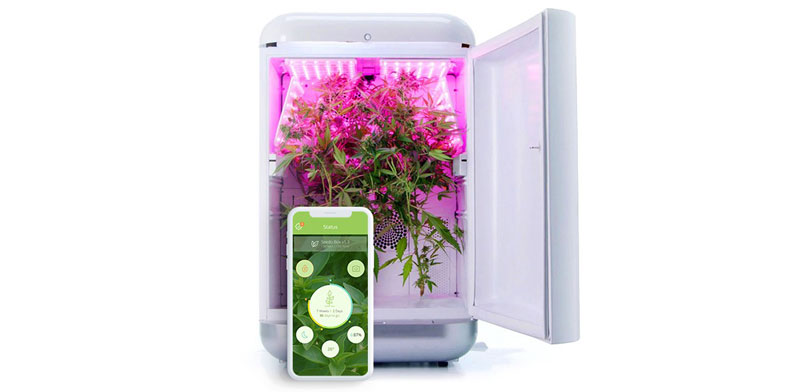
This week, the government approved the export of cannabis from Israel, and as a result, the shares of companies related to the industry jumped and were traded on the local stock exchange. In the meantime, the Israeli company Seedo, which is developing a home or agricultural system for cannabis, is also leaping in a controlled and untouched manner.
Seedo is traded on the over-the-counter market in the US at a company value of $ 32 million, after giving its investors an impressive 300% return since it merged into a stock exchange structure a month and a half ago, while raising $ 2.5 million. Yorkville was led by attorney Shmuel Yanai.
Seedo is currently starting to provide early orders that have already been received for the product, amounting to $ 5.5 million. The invitations are not just from the US, but from many countries around the world, and this moment of meeting the promises made with the product itself is very significant for companies offering "dream" preorder products, because expectations are often very high.
More expensive, more quantity
According to Zohar Levy, the company's CEO, "We developed a device that is a kind of box that is placed in the customer's home and connected to the Internet. The box contains sensors, including a camera that takes pictures of the plant, as well as software, and through which it controls conditions under which the plant grows completely automatically without any intervention from the customer. There is no need for pesticides, the computerized computerized management of the tumor saves water, and the tower only has to change from time to time a CO2 balloon, a water filter, an air filter and fertilizers. "
What's in the box?
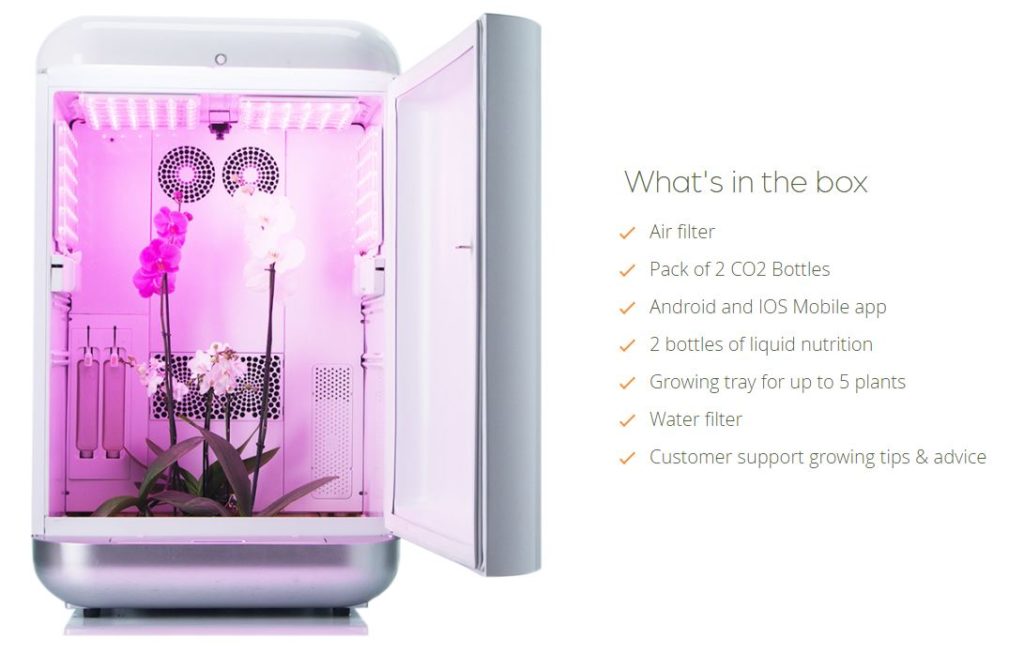
A home box costs $ 2,400 and the consumables to be replaced twice a year cost about $ 270 a quarter. So that ultimately the cost of the produce is higher than what you would pay, for example, to purchase medical cannabis at the average dose recommended for a patient in Israel. However, the quantity is also higher, and in markets that allow this - the material can be sold on. In addition, the price of the competitors is higher than abroad: "Each seedling produces 100 grams of dry flowers in 90 days, and in the US they return at least $ 10 per gram."
Serial Production on 2020
The company began its marketing of the product to customers who are actually farmers, and not to the home market. She intends to return soon. "Cannabis of high quality must grow under controlled conditions ie in a closed place. Our growing grocery saves manpower, 6-8 people per container, and can also load the containers one on top of the other, to save space and to grow within the city. The aim is to provide such containers in production Serial until the end of 2019. "
The product is now intended for cannabis and is especially worthwhile for growing, which can also be sold dearly, but there is no reason why it should not be used in order to grow other agricultural products, such as seasoned strawberries or saffron, which is also an expensive plant. Also, consumers who care about eating organic foods and do not rely on organic-grown crops that are grown according to standards can thus fully control their growing conditions, without actually becoming farmers.
"Employees no longer perceive themselves as another screw in the system and companies have to adapt to it"
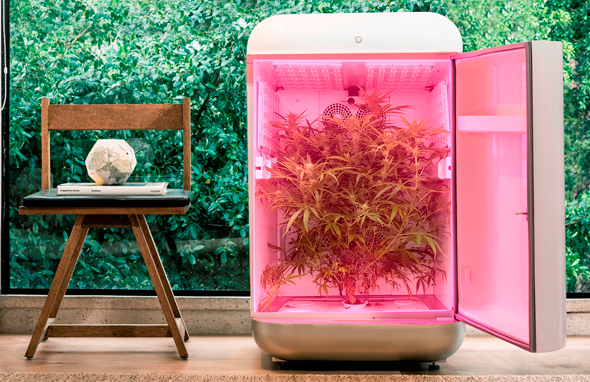
Levy: "We are working on another product for self-cultivation of a salad, which will be the size of a refrigerator, divided into cells, each of which has unique control according to the conditions required by the crop, and will adapt the crop to the consumption of the family. Instead of buying them. Our vision is that one day the refrigerator will increase all the food needed for the home itself without intervention".
The idea of uncontrolled agricultural farming without land had gained popularity a little more than a decade ago, and then faded. "In the previous wave of this technology, it simply was not advanced enough, it took a lot of lamps to heat the plant and then air conditioners to cool the plant.

About SEEDO
Israel-based startup Seedo (incorporated as Eroll Grow Tech Ltd.) has delivered the first batch of its home cannabis farming device to customers in California and is looking to expand to markets in Africa, the company announced last week. To support its expansion, Seedo recruited former U.S. Assistant Secretary of State for African Affairs Jendayi Frazer to serve on its board.
Founded in 2013 and headquartered in northern Israeli city Haifa, Seedo develops an automated device the size of a mini-fridge that can be used to home-grow cannabis from seed to flower under controlled conditions. The device uses computer vision to analyze the state of crops and determine their needs.